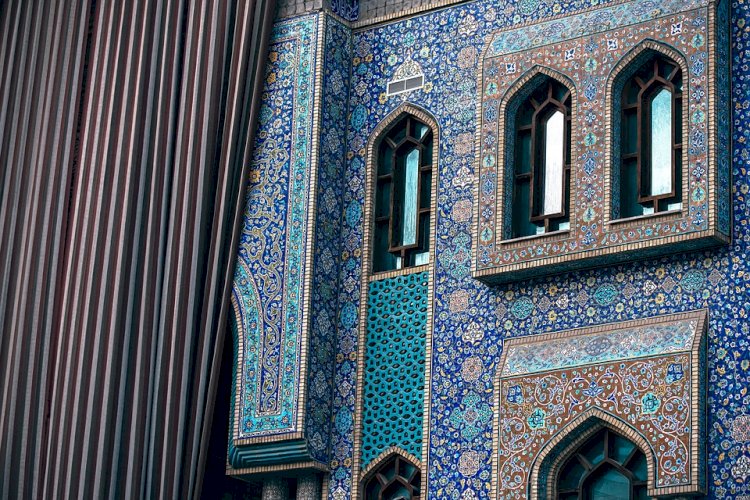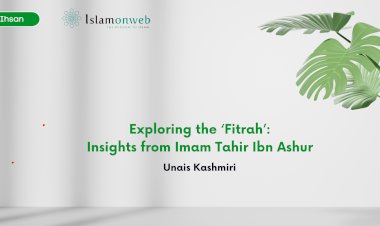Islam’s Drive for Behavioural Transformation
Islam is the only religion that arranges life from the cradle to the grave in the most beautiful way, inculcating the hearts with virtue and perfecting their behaviour with good morals. In human systems, where a self-interested mentality prevails, there is never a room for spiritual virtues and moral virtues. Without the moral codes, individuals are considered the gears of only one wheel in these systems.
The goal in Islam is the recovery and revival of humanity. For this reason, Islam kneads people with high qualities such as firstly true belief, then the best deeds, and accordingly with high traits such as compassion, empathy, sacrifice, service, wisdom, kindness, justice, fairness, righteousness and honesty.
This is a historical fact that our Prophet (ﷺ) who was sent to the worlds as mercy, embraced humanity which was drowning in the swamp of ignorance, cruelty, injustice and anarchy, with mercy and compassion, the most precious fruit of faith. In this way, he turned many deserts of hatred and revenge into a peaceful garden decorated with love, friendship and brotherhood.
By applying Islam's lofty principles to the people of 'dark age', star personalities were raised who would shine in the sky of virtue and guide humanity until the Day of Judgment. The Companions of Prophet (ﷺ), who regarded being a means of salvation of a person more valuable than having the whole world in their hands, said, "Whoever comes to kill you, will be resurrected by you!". They wrote their motto in the history of humanity in golden letters.
The Prophet (ﷺ) has forgiven many criminals who deserved to be killed, and even Vahshi, who murdered his uncle Hz. Hamza and cut his lungs, was forgiven for being honoured with faith. He even treated them according to the law required by the religious brotherhood. Compassion always preceded wrath in his heart. Many fires of ignorance and illiteracy that burned humanity were extinguished with the Kawthar (heavenly water) of truth offered by Him.
Islam has raised selfless human beings to the extent that they reached to stage where they showed the seemingly impossible readiness to handover the water brought to him when he was wounded badly to his injured brother and that religion only motivated him to think of someone else even on the very crucial time of his last breath. Islam moulded richness of the heart of a slave who gives his daily alimony of three slices of bread to a hungry dog he meets on the road and endures his own hunger.
Islam declared all people who believed in it as "brothers and sisters" and ordered others to be regarded as their partners in humanity and strive for eternal salvation. Besides, it warned that no soul should be hurt, despised and insulted.
Also Read:Sufi Theology and Traditions in Shaping Kerala Muslims’ Life Patterns
In this respect, Islam represents a supreme spirit that approaches people with love and inculcates compassion and mercy towards all creatures for the sake of the Creator. It turns a person away from being a devastating hulk and transforms into a sincere soul who is the motto of connecting hearts, who can look at even an ant with a respectful eye.
The religion of Islam focuses on how the moral conduct of a person who has been created in the best way should be. In many verses of the Quran, it is clearly stated what the moral characteristics of a person are. Allah wanted people to be truthful, just, honest, compassionate, and trustworthy individuals.
The Prophet who has these moral qualities was addressed as, "You are definitely upon a great morality" by Quran. The Prophet (ﷺ) said, "I was sent only to teach you good morals." Again, Almighty Allah has shown Muhammad (ﷺ) as the "best example" to all believers because of his good morals and asked whole humanity to shape their behaviour by taking him as an example.
According to Abul-Husain Annuri (d. 908), one of the important names of the early Sufis, Sufism (Islamic spiritual lifestyle) is neither a set of ceremonies nor a collection of knowledge; on the contrary, Sufism is all about morality. The same Sufi stated that Sufism consists of the virtues of freedom, generosity and elimination of worldly desires and troubles. There have been many who described Sufism as "husn al-khuluq" (good morality). Hasan al-Basri stated that people of taqwa could be recognized by moral virtues such as truthfulness, devotion to the pledge, affection for relatives, compassion for the poor, purging of pride and arrogance, getting along with people and good temperament.
Some Sufis have summarized the subject of Sufism as “takhalluq and tahaqquq”. Takhalluq is the educational dimension of Sufism and teaches Islamic morality. The latter covers topics like spiritual orders, spiritual stages, seyr-u sulūk (training under the guidance of a mentor) and moral codes. With the dimension of takhalluq, one achieves cleansing the heart from bad feelings, removing the habitual bad attributes, acquiring commendable qualifications and the glorification of behaviour. Then, the Sufi who scale the heights with morality and taqwah (piety), begins to recognize al-Haqq (God ) by His acts and attributes with the help of mystical training.
According to Sufis, the purpose of Sufism and religious education is to teach people to act responsibly towards God and the people. Sufism aims to show the ways to get rid of the bad qualities in the heart of the human being and nurture the good qualities and show the ways to gain them. Thus, it aims to reach the highest level of "Perfect human being" (Insan Kamil) by crossing the levels of spiritual training.
‘Insan Kamil’ means 'mature person' in Arabic. What is meant by it is a Muslim who has reached moral maturity, which is expressed in the Quran and hadiths. Morality or purification of the human soul, which has an important place in the religion of Islam, forms the basis of Sufi thought. Because, in mystical thought, the glorification of man in terms of spirituality takes place by having moral values. By acquiring moral qualities such as loving people and all living things, keeping promises and being trustworthy, people keep themselves away from hatred and evil. Sufism contributes to developing these aspects of people and their growth as responsible and morally sound individuals.
Therefore, those who want to devote their hearts to Islam and serve they should know that this holy cause aims first of all to man's education and well-being because those who could comprehend that every person should be treated to the extent that Allah has created them as the most honourable of beings and could serve in the ranks of this religion of mercy in a way suitable for God's consent.
All the emotions that emerge from the lofty nature of Islam are necessary for human life. In this respect, Islamic ideals themselves are human ideals. The human ideals can only be lived by practising the beauties that emerged by the standard and dimensions of Islam.
(Musthafa Ujampady is a PhD fellow, Dept. Of Sufism, Ankara University, Turkey)
Disclaimer
The views expressed in this article are the author’s own and do not necessarily mirror Islamonweb’s editorial stance.
























Leave A Comment